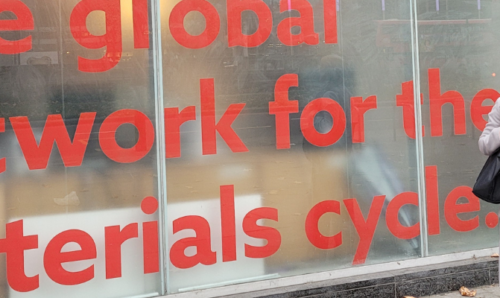Our Alumni: Remote working in the UK technology sector
Materials World 6th July 2020
What is your name and age, and where are you from?
Name: Aiswarya Kishor
Age: 24
Hometown: My family is from Kerala, the southernmost state of India and I grew up in Dubai.
Which degree programme(s) did you study at Manchester, and at what level?
I completed an integrated masters in Biomaterials Science and Tissue Engineering at Manchester and graduated in 2018.
What did you enjoy most about the course?
My favourite part of the course was the combination of subjects it offered. Over the four years of my degree, I was able to pick up modules across a range of disciplines from biology and materials science to intellectual property law and management. Another aspect of the degree I appreciated was the focus it placed on innovation and undergraduate research.
My degree heavily emphasised the importance of creating novel solutions for healthcare problems. While being taught about historical and present day approaches, we were always encouraged to produce something new and play our part in shaping the future.
Can you tell us a little about your career post-university, and the role you’re in now?
After graduating from Manchester, I landed a graduate job at Arm, a technology company based in Cambridge. Over the last two years, I’ve explored different areas of the business and tried my hand at product-focused roles, customer-facing roles and even completed a stint in operations.
Currently, I am on a 6-month secondment focused on change management. Secondments are fantastic learning opportunities wherein you temporarily move to a different team within the company. In essence, change managers at Arm focus on the people side of change. They help the company run more efficiently by scaling up processes and driving transformation programs. While on secondment, one of the key projects I have been involved with is the implementation of Salesforce across the company’s commercial teams.
How has your work adapted during Covid-19 and has your role changed?
Even before the UK government announced the lockdown, Arm proactively made the decision to let all its staff work from home (in all offices around the globe). Being part of the technology sector, we were well-positioned to switch to remote working. Many of my colleagues were used to working from home a few days a week well before the pandemic began. Even so, we were confronted by some new challenges when we made the shift to 100% remote working. The company eased this transition by acknowledging the challenges we faced and offering us their complete support.
For those of us who did not have comfortable workstations at home, Arm provided IT equipment free of cost. Through this scheme, I was able to get a widescreen monitor and keyboard and these pieces of equipment have enormously improved my remote working experience. To ensure maximum comfort in our home working setups, we were offered online ergonomic consultations with experts and given the option of borrowing our sturdy office chairs.
Arm has always encouraged individuals to pursue ideas and start their own initiatives at work and the pandemic has underscored the incredible impact such a culture can have. Since the lockdown began, we have been given access to virtual mindfulness sessions and useful apps (such as Babylon Health and Unmind). Our minds have been put to ease by regular information sessions about pertinent topics such as how to access medical insurance and how COVID affects pensions. Even the gym and canteen staff have taken their efforts online by providing livestreamed wellbeing classes (including yoga, circuit training, pilates) and suggesting lockdown cooking recipes and ideas.
Remote working has also pushed us to adapt the way we interact with our colleagues. The casual conversations and coffee breaks we once had in the office are now substituted by virtual videocalls and casual catch-ups. Although these cannot fully replace the real deal, these have certainly helped us feel less isolated and kept up the team spirit. We’ve also been having virtual pub quizzes and Friday happy hours and those have given us something to look forward to every week even when we’re stuck at home.
How have you adjusted to the new way of working?
In the first few weeks of working from home, I began to realise that I was working longer hours and taking fewer breaks than I would have done in the office. In recent weeks, I’ve become stricter with myself about logging off at a reasonable time and mentally disconnecting from work.
To cope with being stuck indoors, I’ve added more outdoor exercise to my days and made extra efforts to stay in touch with family and friends. My cousin (aka my lockdown buddy) and I both work from home and try to fill our evenings with fun activities. So far, we’ve embarked on a couch to 5k running program, competed a few movie marathons and even tried out some (relatively successful) culinary experiments. These activities have kept our morale high and helped us both adjust to the new way of working.
What skills gained at Manchester have helped you adapt to your new ways of working?
As a student at Manchester, you juggle classes, part-time jobs, societies, job applications and having a buzzing social life. My time at Manchester pushed me to develop the skills of working well independently and managing time effectively. These skills are especially relevant to a time like this when you need to continue to be productive under very strange circumstances.
Do you think this will change the way you work permanently?
Once the situation settles down, I hope to see more companies offering employees the option of flexible working. Even though I personally miss the social interactions that occur in the office, I cannot deny the benefits of remote working. On a personal level, cutting down commute times will give people more time for themselves and their families. In turn, the reduced commutes, combined with the steep decline in international work travel, will undoubtedly have a positive impact on the environment.
That being said, we are also becoming more acutely aware of the benefits of in-person interactions and the divide between work and home. Going forward, I hope that whatever the future holds will be a combination of the two, where we are offered the option of working remotely but we are not entirely remote.
What advice can you give to students who are adjusting to new ways of working and studying?
My advice to students at this time would be to make the most out of the online resources that are available to them. It’s easy to be overwhelmed for choice when it comes to online classes and certifications but these can be filtered out pretty easily by focusing on what kind of job you would like to do in the future or what problem you want to solve in the world. Starting from that point, you can work backwards to hone down on which new course or skill is the best choice.
My other piece of advice to students would be to simply take a pause and spend time doing things they like during the lockdowns. Sometimes the best thing you can do for yourself is to limit the amount of anxiety-inducing news you consume. In an ideal world, we would all be able to look back on this time and be proud of ourselves for making best out of a terrible situation. Failing that, 2020 can at least be the year we returned to old forgotten hobbies or cultivated some new ones.
What are your hopes for the future?
Three months ago, I did not imagine that I would get to meet my manager’s newborn or colleague’s brand new puppy via video-call. But since the lockdown started, work lives and personal lives have started to collide and we have begun to accept that fighting to keep them apart is hard and even unnecessary.
I’ve always believed that stressful situations have a strange way of bringing people closer. When we return to normality, I hope to see that we will be kinder and more generous with each other, having lived through this year together and survived a pandemic worthy of history books!
AlumniBiomaterialsEngineeringmaterials scientistsTissue engineering







Leave a Reply
You must be logged in to post a comment.